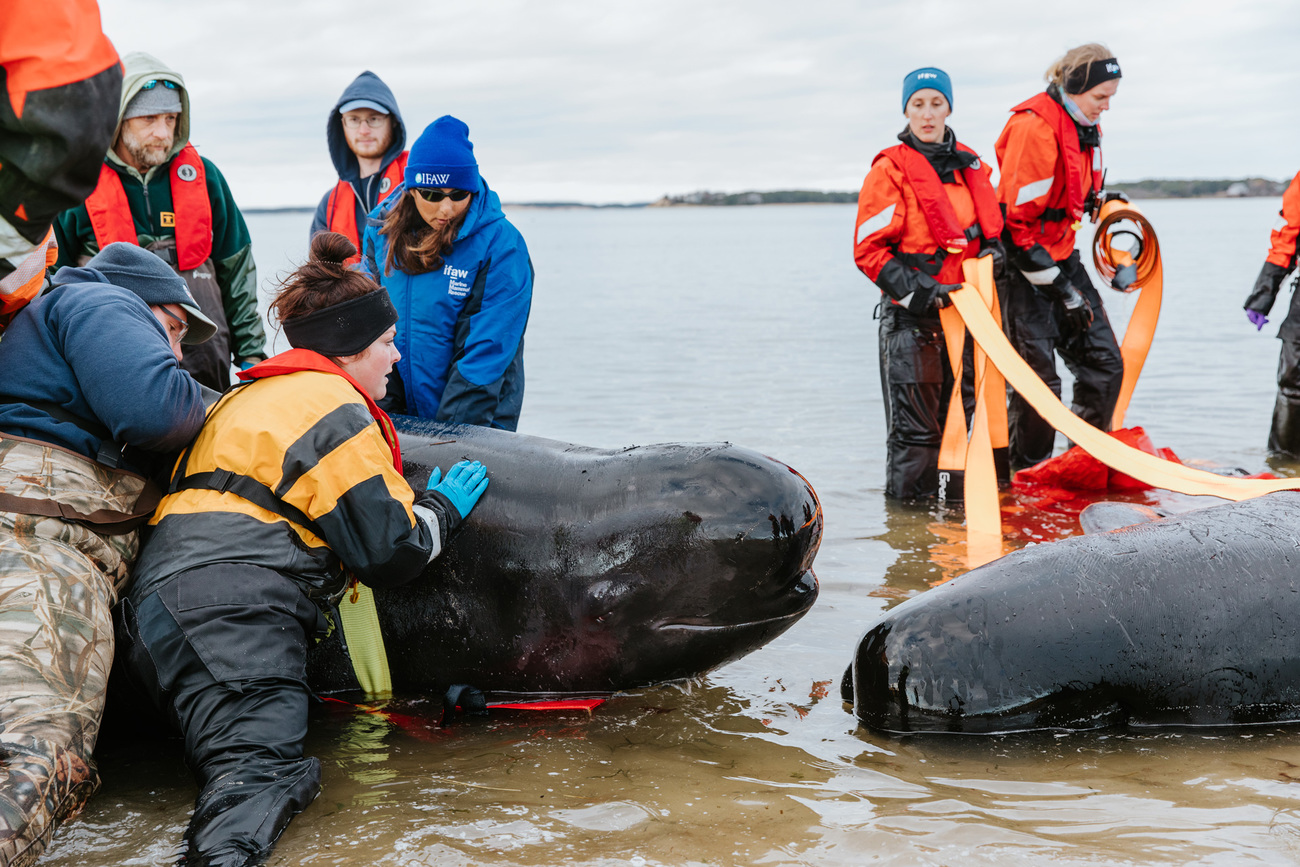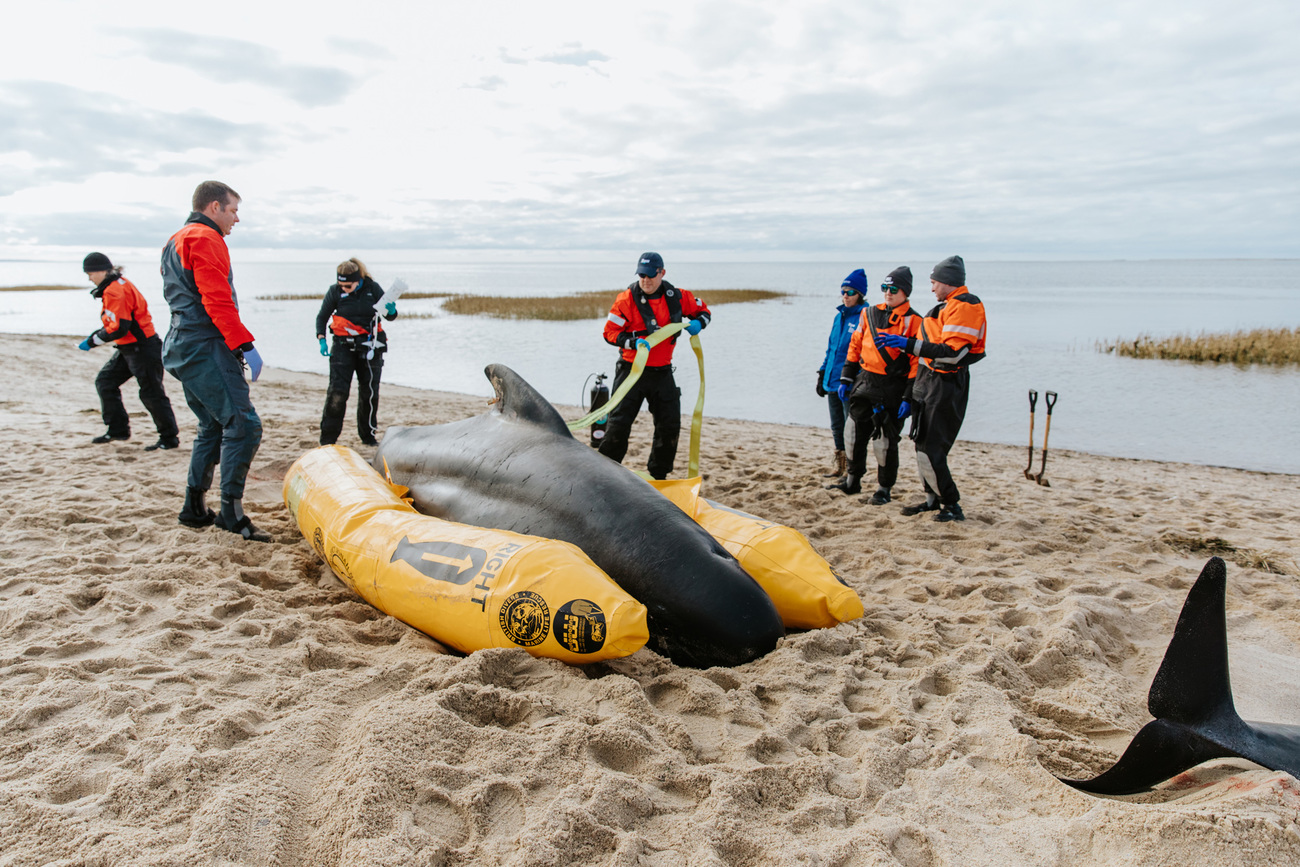Stranded Marine Mammal Rescue - Global
When the tide is low, the stakes are high for marine mammalsa 3-day stranding event for pilot whales on Cape Cod
a 3-day stranding event for pilot whales on Cape Cod

Six long-finned pilot whales stranded north of Sunken Meadow Beach in Eastham, Massachusetts on Monday evening in what turned into a three-day event with more than 50 responders—including IFAW staff, volunteers and surrounding area teams—that sadly ended with four of the animals being euthanized.
The stranded pilot whales were first spotted on Monday evening by a Massachusetts Audubon volunteer walking the remote area to watch for cold-stunned sea turtles. They were high up on the beach with the water several hundred yards away. A large response was not safely possible due to the darkness, but a small team from IFAW examined the whales and satellite tagged two to track their progress in hopes they would find their way out in the overnight high tide. But the tide was not high enough for the large animals to refloat on their own.
By Tuesday morning, one calf had died but the other five animals were still alive.
The effects of stranding can be especially severe for bigger cetaceans due to the effects of gravity on their bodies.
“Some of these animals were very large, the largest of which we estimated to weigh almost 4,000 lbs or almost two tons,” says Brian Sharp, IFAW’s Director of Marine Mammal Rescue & Research, who was part of the team that provided the stranded pilot whales with supportive care until the next tide window.
Their massive size also posed a transportation challenge. IFAW typically transports smaller stranded dolphins to deeper water using a custom-built rescue vehicle, but that wasn’t an option in this case.

>> Click here to view the photo gallery.
The team instead used an inflatable pontoon that was positioned under one of the pilot whales to help get it back into the water.
After hours of care on the beach, including IV fluids and other veterinary treatments, all five animals were refloated and released just before dark in an incredible effort by IFAW staff and volunteers, along with the help of AmeriCorps Cape Cod, Whale and Dolphin Conservation and the Wellfleet Harbormaster. But four of the pilot whales soon turned back toward shore and restranded in a more remote location.
At first light on Wednesday morning, the four animals were confirmed to still be stranded. The fifth has not yet been located.
Unfortunately, after three days of stranding—comparable to humans experiencing a major car accident—the pilot whales were debilitated, and their health had greatly declined.
The team made the difficult decision to euthanize the pilot whales, considering their welfare and knowing that rescue efforts at this stage were no longer going to be possible due to their health and unfavorable weather and tides. They passed quickly.
IFAW will perform necropsies (animal autopsies) on the four euthanized pilot whales, which will help us understand why they may have stranded and provide critical data that will allow us to better help cetaceans at future strandings.
*Activities conducted under a federal stranding agreement between IFAW and NMFS under the MMPA.
Related content
Our work can’t get done without you. Please give what you can to help animals thrive.